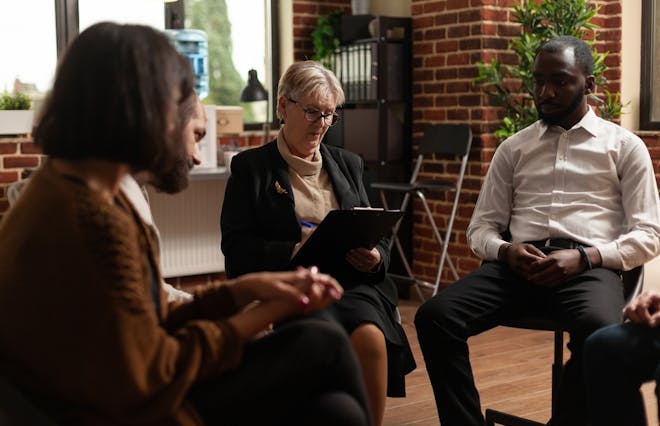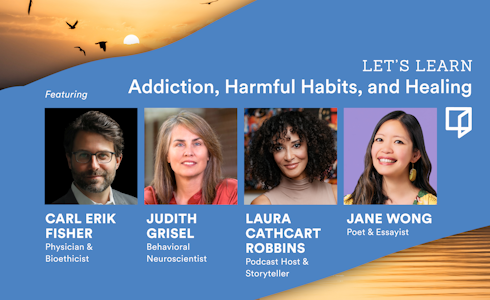Healing Together: The Role of Community in Addressing Addiction



November 23, 2023
Related Event

Understanding Addiction and the Role of Community in Healing
Addiction is a complex condition that extends its effects far beyond the individual. It is characterized by an uncontrollable desire to engage in harmful substance use or behaviors despite the negative consequences. The National Institute on Drug Abuse highlights that addiction affects the brain's reward system, decision-making ability, and stress regulation. This often leads to deteriorating physical health, strained relationships, and disruptions in personal and professional life. The impact of addiction doesn't stop at the individual; it ripples out to families, friends, and the wider community, creating a web of interconnected challenges.
However, there is a beacon of hope in this challenging journey — community support. A community can take various forms, from close-knit family units to larger social networks, including support groups and community initiatives. These networks play a crucial role in providing a supportive and understanding environment necessary for effective recovery.
In this blog post, we will explore the following:
The Power of Shared Experience: How group settings offer validation and a sense of belonging to individuals in recovery.
Diverse Support Groups: The roles and benefits of different types of support groups, such as 12-step programs and therapy-led groups.
Community Involvement in Recovery: The significance of neighborhood initiatives and local events in supporting recovery journeys, and much more.
The Power of Shared Experience
The journey through addiction and recovery is often marked by feelings of isolation and misunderstanding. However, the power of shared experiences in group settings can transform this solitude into a sense of community and belonging. When individuals come together to share their struggles and victories, it validates their feelings and experiences, fostering a deep sense of connection and solidarity.
A study published in the Journal of Substance Abuse Treatment in 2021 emphasizes the significance of shared experiences in addiction recovery. It highlights that individuals who participate in group therapy or support groups often report feeling less alone in their struggles. They gain new perspectives on their challenges and are inspired by the stories of resilience and recovery of others.
Exploring the Spectrum of Support Groups
In the journey of addiction recovery, support groups come in various forms, each offering unique benefits to cater to the diverse needs of individuals. These groups provide not just a forum for sharing and camaraderie but also specific approaches and philosophies that can significantly aid in the recovery process.
12-Step Programs: Widely recognized groups such as Alcoholics Anonymous (AA) and Narcotics Anonymous (NA) are based on the 12-step recovery model. These programs focus on spiritual growth, personal accountability, and community support. A key benefit of 12-step groups is the establishment of a strong peer support network, which is crucial for long-term recovery.
Therapy-led Groups: These groups are facilitated by mental health professionals and often incorporate therapeutic models like Cognitive Behavioral Therapy (CBT). They are effective in addressing the psychological aspects of addiction, providing tools for coping with triggers, and modifying harmful behavior patterns.
Peer Support Groups: Unlike therapy-led groups, peer support groups are typically facilitated by individuals who have experienced addiction themselves. They offer a platform for sharing experiences and strategies in a non-judgmental setting, fostering a sense of mutual understanding and shared resilience.
Online Support Groups: With the advent of digital technology, online forums and virtual meetings have become increasingly popular. They offer accessibility and convenience, allowing individuals to connect with support networks from anywhere, often bridging geographical constraints.
Specialized Groups: These groups cater to specific demographics or types of addiction, such as groups for women, youth, or those dealing with a particular substance. By focusing on specific needs and experiences, these groups provide more targeted support and understanding.
Each type of support group holds its unique strengths, from the structured approach of 12-step programs to the empathetic, peer-led nature of other groups. The choice depends on individual preferences, needs, and the specific nature of their journey through addiction and recovery.
Engaging with the right type of group can significantly enhance the effectiveness of the recovery process, offering a pathway to healing that resonates with the individual's unique circumstances.
Community's Role in Supporting Recovery
The role of the community in the recovery process from addiction is as significant as it is multifaceted. When a community actively participates in supporting individuals on their recovery journey, it creates a nurturing and understanding environment that can significantly enhance the effectiveness of the recovery process.
Community involvement ranges from local neighborhood initiatives and events to broader societal acceptance, each playing a crucial role in aiding recovery. These collective efforts work towards building an inclusive and supportive atmosphere, essential for those recovering from addiction. They provide practical support, such as drug-free community events or awareness campaigns, while also helping to break down the stigma surrounding addiction.
Societal acceptance and understanding, as emphasized by organizations like the Substance Abuse and Mental Health Services Administration (SAMHSA), are pivotal in transforming the narrative around addiction, making recovery a more accessible and less isolating journey.
Cultivating a Network of Compassionate Care
Creating a robust support network is integral to the recovery journey for individuals battling addiction. Each strand of this network contributes uniquely to the recovery process. Healthcare professionals and therapists provide the backbone of this support structure, offering essential medical and psychological care. They create a safe and compassionate space for emotional healing, delivering evidence-based treatments crucial for recovery. In addition to professional support, the role of personal relationships in the recovery process cannot be overstated.
Family and friends bring an element of empathy, understanding, and unwavering support, which can profoundly influence the healing journey. Family involvement in treatment as it significantly enhances the chances of maintaining sobriety. Alongside these personal and professional supports, community resources like local support groups, rehabilitation facilities, and community centers play a pivotal role. They offer a variety of services, from group therapy and educational workshops to recreational activities, promoting a holistic approach to recovery.
The Transformative Power of Community in Overcoming Addiction
As we reach the conclusion of this exploration, it becomes unmistakably clear that the role of community in the journey towards recovery from addiction cannot be overstated.
While the path of overcoming addiction is undeniably personal, fraught with individual challenges and milestones, it is the strength drawn from a supportive community that often makes the transformative difference. Communities, in their multifaceted forms, provide more than just a safety net; they offer understanding, shared experiences, and a collective strength that can bolster the individual's resolve to heal and grow.
Addiction recovery is not a solitary endeavor. It thrives in the fertile ground of empathy, support, and collective wisdom. The journey, although marked by personal trials, is also a passage that the light of communal support can illuminate. This shared journey underscores a fundamental truth about human resilience: we are stronger together.
Related Event


